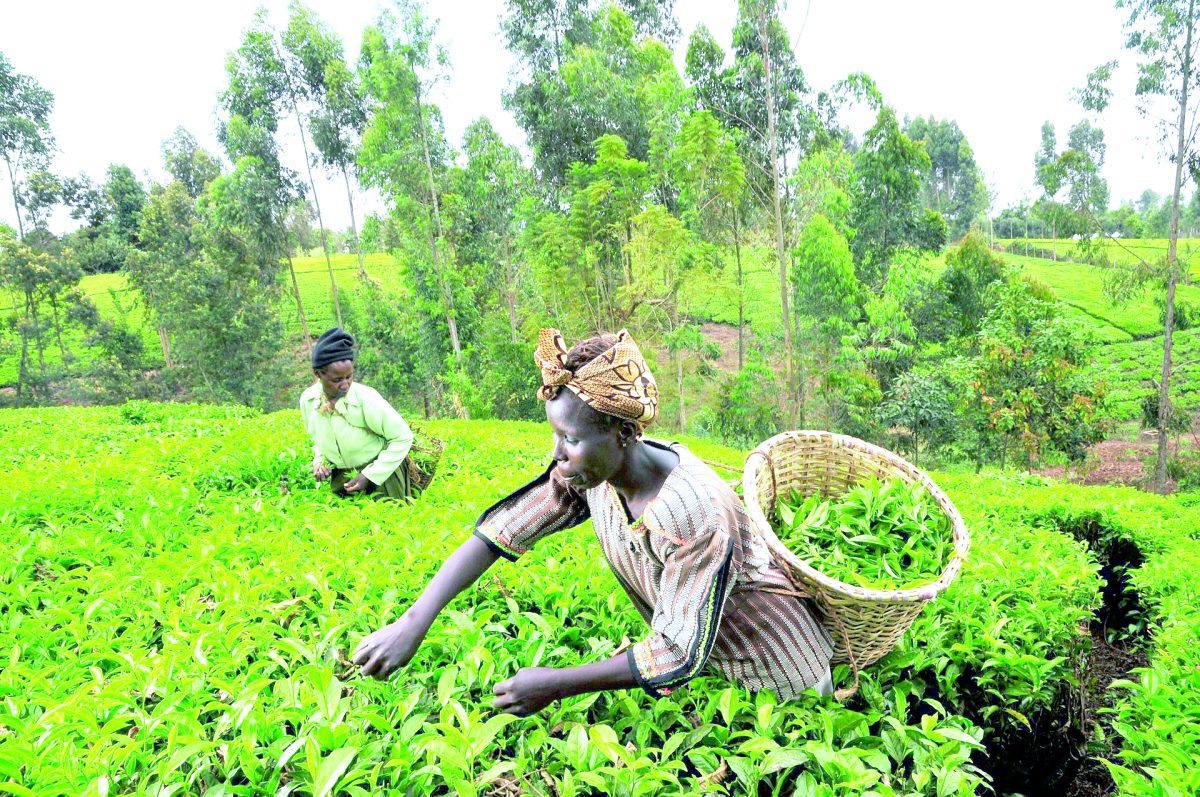Tea sector reforms big hope for small-scale farmers

Smallholder tea farming in Kenya accounts for about 65pc of the total tea production in the country with the rest being produced by multinationals. Over the years, Kenya’s tea sector continues to be a key forex earner for the nation as well as a catalyst to the growth of the local and rural economies.
Notably, the tea subsector has been a history of excellence but more importantly, with tea reforms taking root and political goodwill of the government, the small holder farmers are in for higher market dividends. This is so because the potential that lie in our agriculture as we move towards non-reliance on rain fed agriculture is enormous.
It is important to underscore that globally, Kenya is the third leading producer of tea and the biggest exporter accounting for 28pc of the world tea exports. Notably, in the year 2021, the tea sector earned the country Sh136 billion in foreign exchange and the projections of the year 2022, we estimate export earnings from tea to stand at Sh150 billion. To the Kenyan economy, and this money mostly moving to the bottom of our economic pyramid, means an economic empowerment of great proportions.
As we entrench the tea reforms mostly targeting the small-scale tea farmers, it is important to note that this sector is one of the key drivers of Kenya’s socio-economic development and a key pillar for economic growth providing a source of livelihood directly to over 750,000 farmers, 90pc of whom are smallholder tea growers. The sector also supports more than 7 million Kenyans indirectly, representing about 13pc of the country’s population and at the same time contributes about 2pc of the Gross Domestic Product and 4pc of the Agriculture GDP.
Clearly looking into the role this sector plays in the economy, this is a key area of focus towards the economic growth and stability of our economy. Thus, as Kenya counts on agriculture to drive the attainment of Vision 2030 while still training our guns towards the 2030 Agenda, the tea sector forms the nuclear to power this engine.
There are many reforms that have also been introduced by the Tea Act, 2020. These reforms are aimed at improving returns to the tea farmers especially the small-scale holder farmers. Over time, these farmers have been incurring costs unnecessarily, they have been affected by price fluctuations and governance issues bringing efficiency most of the chain to almost a halt. With the tea reforms taking shape, most of these cries are part of the history in the tea value chain.
More specifically, the sector, under new reforms would be key in creating millions of jobs bearing in mind that there are over 5 million unemployed Kenyans and the slow rural economies.
Even as the tea reforms take shape and much gains are yet to be felt in the course of time, we have noted key successes critical to the future of the tea sector. Farmers are getting better returns and early payments and have a big voice in electing their leaders. This is critical in avoiding farmer exploitation and a big blow to the middlemen, who have, for a long time been a hallmark of corruption in the sector. This year alone, the tea revenue has grown by 3.5pc courtesy of these reforms.
Now farmers have voice in governance through their elected leaders, it is worth noting that the decision by the smallholder tea factories to fix a minimum reserve in July 2021 to stem the declining tea prices from an all-time low of USD 1.89 per Kg has resulted to improved prices up to an average of USD 2.64 in October 2022. This is a strong indicator that the reforms on course require more support than ever before for the benefit of the farmers.
Another key milestone towards improving the fortunes of tea farmers is subsidised fertilizer under the Kenya Kwanza Government-fertilizer-subsidy programme. This will ease the burden of the farmers in a great way.
— The writer is the CEO of Kenya Tea Development Agency Holdings Ltd












